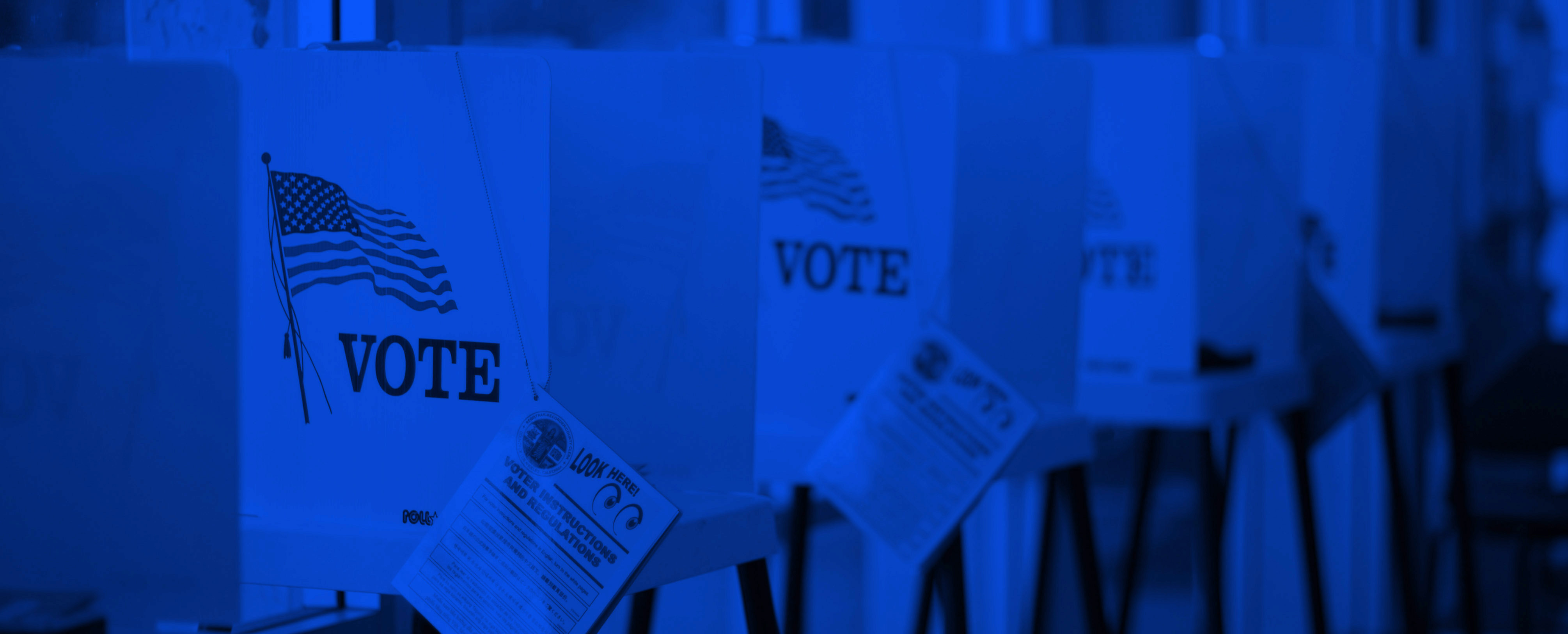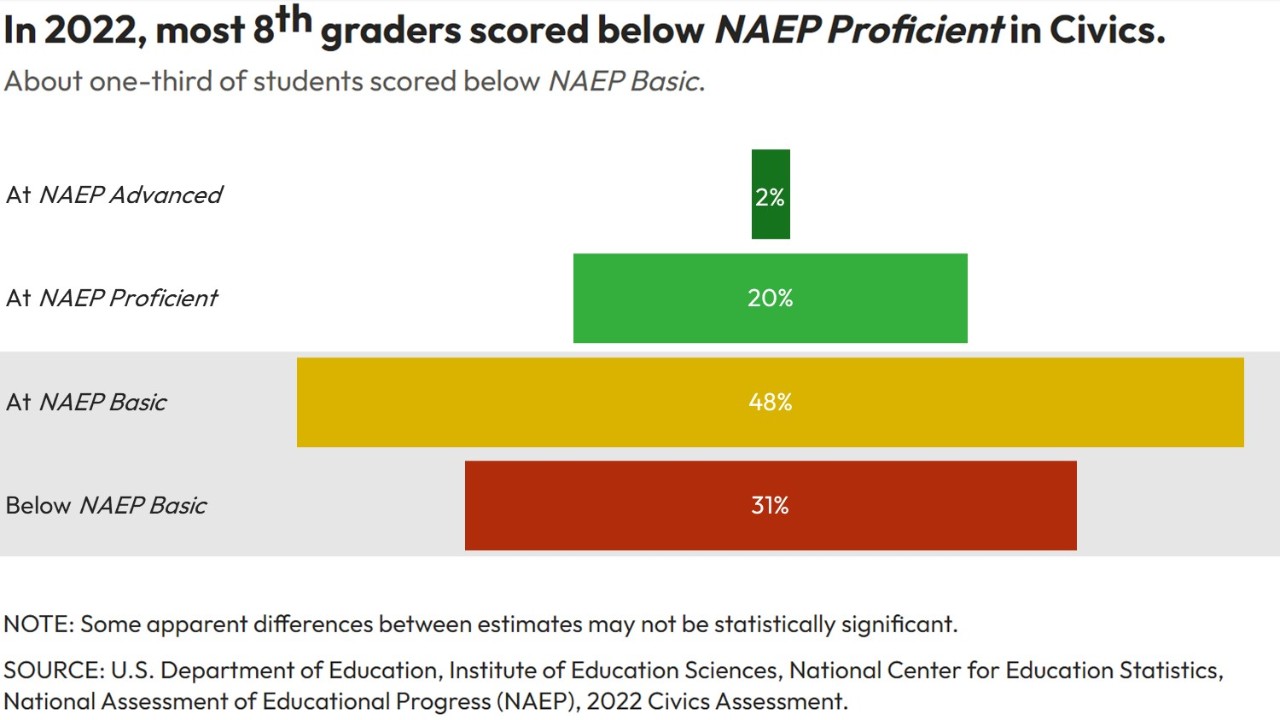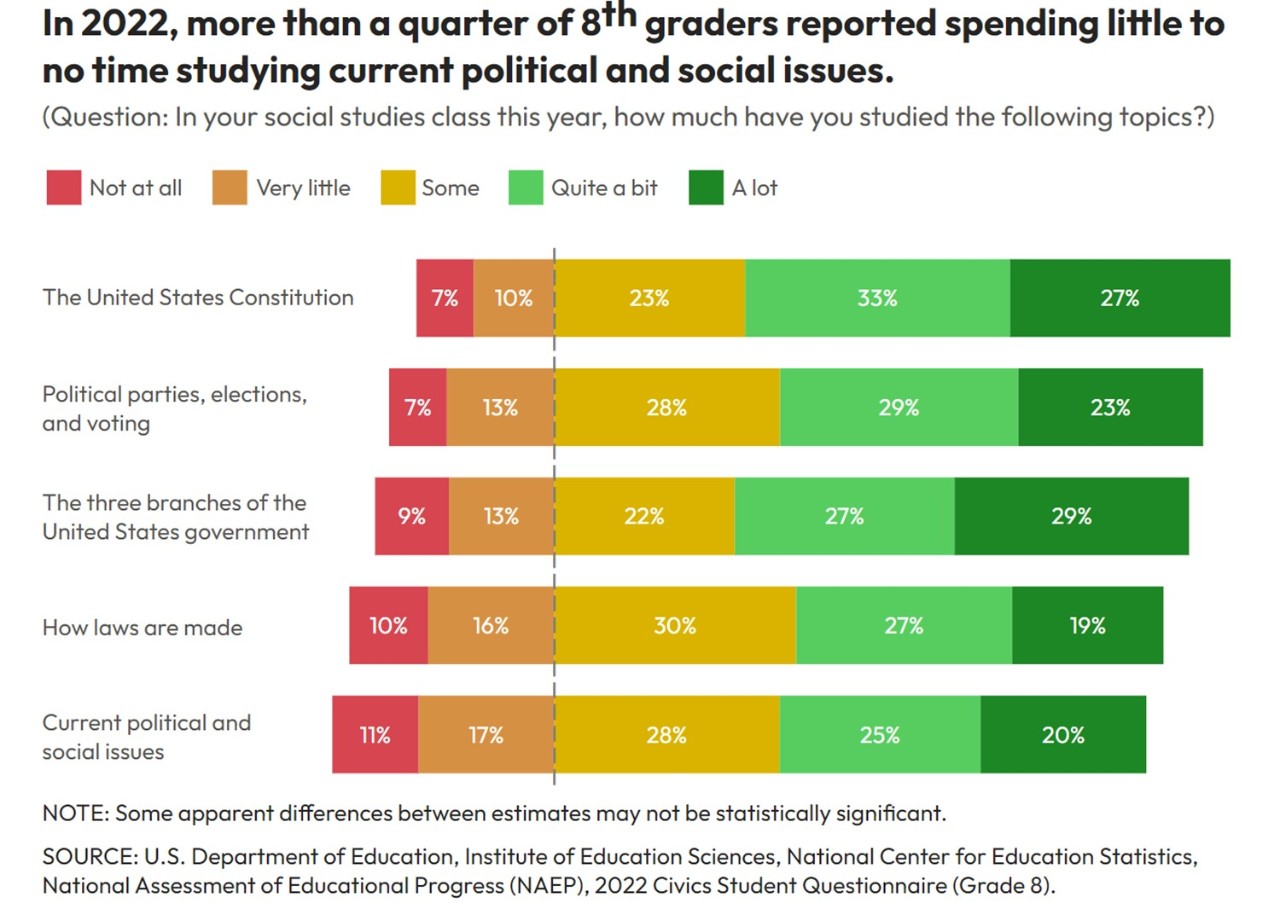
What Are Students Learning In Civics?
What are students learning in civics?
National assessment shows students are struggling in civics. Survey data offer context.
Civics content and instruction play a critical role in helping students participate in our democracy, yet the most recent civics assessment from the Nation’s Report Card, also known as NAEP, found that eighth graders struggle in the subject.
The decline in civics scores made headlines last year, but overlooked was what students reported actually learning in civics instruction.
In 2022, most 8th graders scored below NAEP Proficient, meaning they likely struggled to identify the separation of powers and checks and balances. About one-third of students scored below NAEP Basic, meaning they likely could not describe the structure and function of government.
About five years away from voting age, just 45% of eighth graders demonstrated an understanding of the U.S. electoral system.

RELATED: See the full civics report card here.
See the data on the NAEP Data Explorer: 2022 Grade 8 NAEP Civics Scores by Achievement Levels
So, what do students say they are studying?
The majority of students reported studying the U.S. Constitution; the three branches of government; and political parties, elections, and voting quite a bit or a lot.
Though, too many say the following topics are barely covered in class:
- 17% said they spent little to no time studying the Constitution;
- 26% said they spent little to no time studying how laws are made; and
- 28% said they spent little to no time studying current political and social issues.
Meanwhile only about one-third of students report regularly* studying the rights and responsibilities of U.S. citizens; why it is important to participate in the political process and government; and how local, state, and federal governments differ.

See the data on the NAEP Data Explorer:
- The United States Constitution
- Political parties, elections, and voting
- The three branches of the United States government
- How laws are made
- Current political and social issues
What do students’ teachers say they are doing in class?
About a third of students (32%) have teachers who say their students conduct research about social studies topics at least once per week.
Additionally, students’ teachers reported on how often they have students engage in specific instructional activities in civics.
In the first few months of the school year:
- 23% of students have teachers who report that their classes had never taken part in classroom debates;
- 16% of students have teachers who report that their classes never give presentations; and
- 6% of students have teachers who report that students never write their opinions.
What is the role of current events in student experience in and outside of class?
- 28% report studying current political and social issues “not at all” or “very little” in their social studies class. 45% report that they discuss issues “quite a bit” or “a lot.”
- 39% report at least weekly discussing current events or issues outside of school. External surveys show a similar percentage among adults who report paying attention to the news.
High-performing students report feeling better prepared for their civic roles.
Scores for lower-performing students declined in 2022, a trend seen in other grades and subjects. How students are doing in this subject seems to tie into their confidence about their roles as citizens in our democracy and their communities.
More higher-performing students see themselves able to make a difference in their community and believe their civics schoolwork helps them understand what is happening in the world. Additionally, higher-performing students are more confident in their ability to explain why it is important to pay attention to and participate in the political process.

###
* Regularly refers to students reporting studying this topic “often” or “always or almost always.” The remaining reporting categories are “never or hardly ever,” “once in a while,” and “sometimes.”


